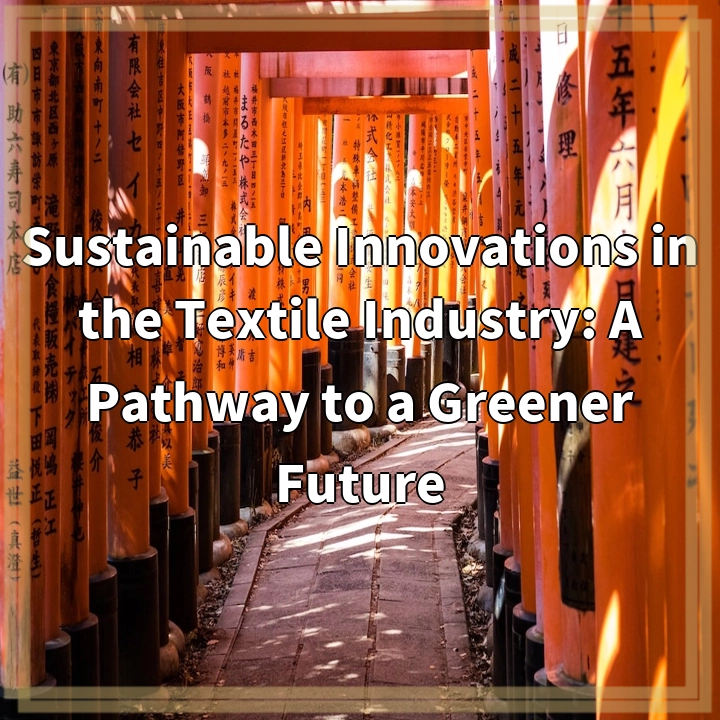Physical Address
304 North Cardinal St.
Dorchester Center, MA 02124
Physical Address
304 North Cardinal St.
Dorchester Center, MA 02124

The textile industry is undergoing a transformative shift towards sustainable innovations that prioritize environmentally friendly practices and technologies. These innovations aim to address the real-world problems associated with traditional textile production, such as resource intensity, chemical pollution, waste generation, labor exploitation, and the fast fashion culture.
The textile industry has long been criticized for its excessive use of resources, including water, energy, and raw materials. However, sustainable innovations offer solutions to reduce resource intensity. Implementing water recycling systems, using energy-efficient machinery, and incorporating organic and recycled materials can significantly decrease the industry’s reliance on scarce resources.
Conventional textile manufacturing processes involve the use of toxic chemicals, posing risks to both human health and the environment. Sustainable innovations in the industry focus on chemical management. By adopting safer alternatives, promoting natural dyes, and implementing strict regulations and certifications, the textile industry can minimize chemical pollution and safeguard ecosystems and waterways.
The textile industry is notorious for generating vast amounts of waste, including fabric scraps, leftover dyes, chemicals, and discarded clothing. To combat this issue, sustainable innovations emphasize a circular economy approach. By improving recycling and upcycling practices, and finding innovative ways to repurpose textile waste, the industry can effectively reduce waste generation and alleviate the strain on landfills.
Labor exploitation is a pressing concern in the textile industry, particularly in developing countries. Sustainable innovations prioritize ethical supply chains to address this issue. Ensuring fair wages, safe working conditions, and ethical practices throughout the supply chain can help combat labor exploitation. Collaborating with certifications like Fair Trade or the Global Organic Textile Standard (GOTS) can provide verification and assurance of ethical standards.
The rise of fast fashion has intensified the environmental and social impacts of the textile industry. However, sustainable innovations offer solutions to promote responsible consumption. Educating consumers about the consequences of fast fashion and promoting sustainable alternatives, such as buying second-hand or supporting eco-conscious brands, can shift the culture towards more mindful and responsible fashion choices.
Sustainable innovations in the textile industry pave the way for a greener future. By implementing resource efficiency measures, managing chemicals responsibly, embracing circular economy principles, ensuring ethical supply chains, and promoting sustainable consumption, the industry can mitigate its environmental footprint and contribute to a more sustainable and equitable global fashion industry.
If you’re wondering where the article came from!
#